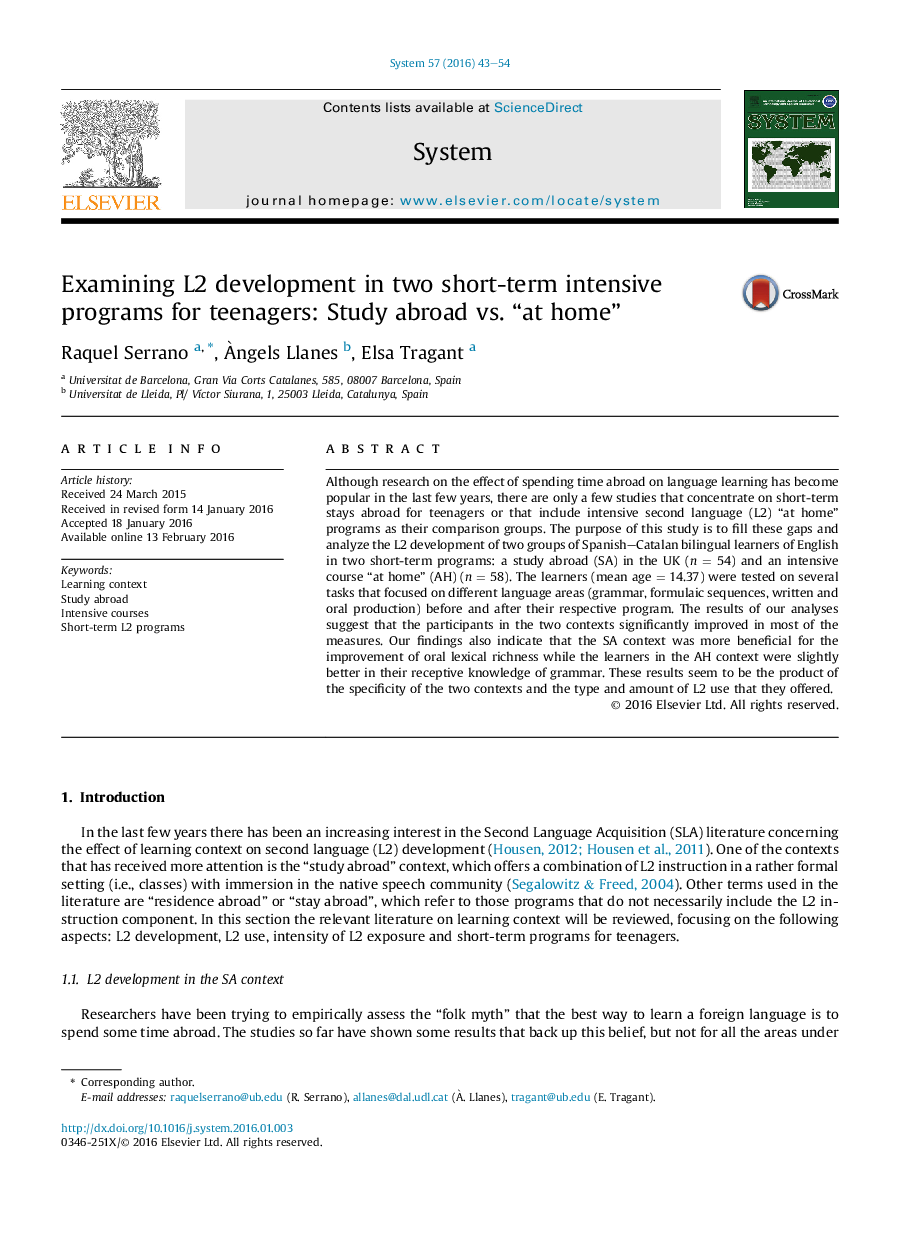| Article ID | Journal | Published Year | Pages | File Type |
|---|---|---|---|---|
| 372906 | System | 2016 | 12 Pages |
Although research on the effect of spending time abroad on language learning has become popular in the last few years, there are only a few studies that concentrate on short-term stays abroad for teenagers or that include intensive second language (L2) “at home” programs as their comparison groups. The purpose of this study is to fill these gaps and analyze the L2 development of two groups of Spanish–Catalan bilingual learners of English in two short-term programs: a study abroad (SA) in the UK (n = 54) and an intensive course “at home” (AH) (n = 58). The learners (mean age = 14.37) were tested on several tasks that focused on different language areas (grammar, formulaic sequences, written and oral production) before and after their respective program. The results of our analyses suggest that the participants in the two contexts significantly improved in most of the measures. Our findings also indicate that the SA context was more beneficial for the improvement of oral lexical richness while the learners in the AH context were slightly better in their receptive knowledge of grammar. These results seem to be the product of the specificity of the two contexts and the type and amount of L2 use that they offered.
